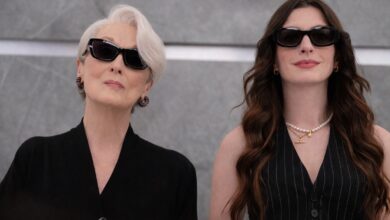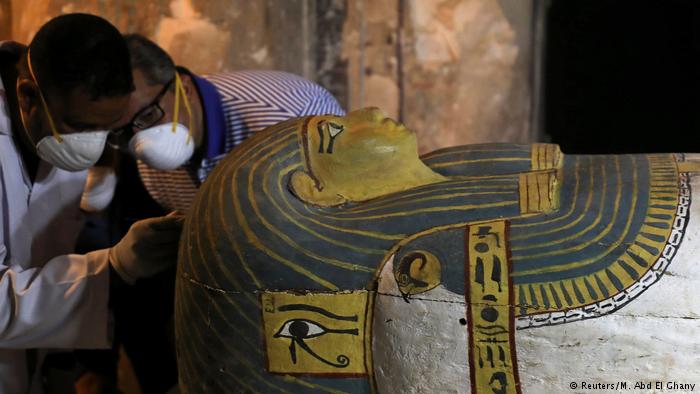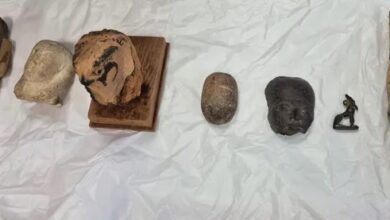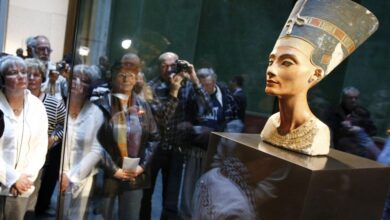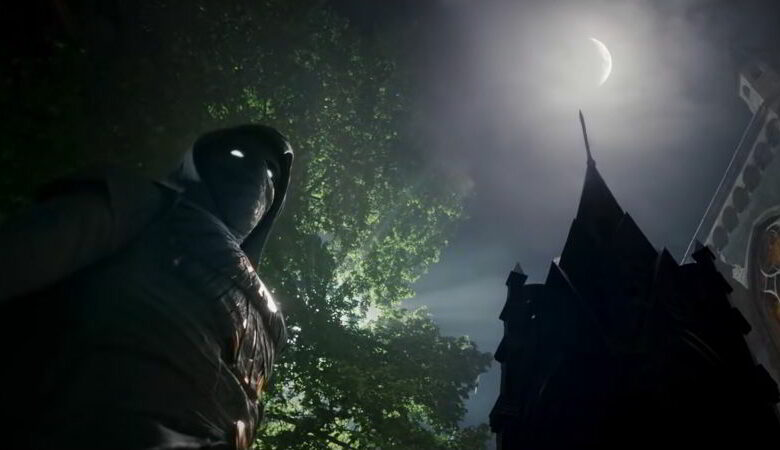
Many of Marvel’s famous stories are based on Roman, Scandinavian, or Japanese mythology, and relate to Chinese and African heritage. Disney and Marvel’s new “Moon Knight” series are no exception, having many aspects of Egyptian mythology.
The Marvel series tells the story of Steven Grant, a British man who works in a gift shop at an exhibition on ancient Egypt.
Grant then turns to be actually Marc Spector, an American man with dissociative identity disorder.
Moon Knight, the nickname for Spector, who makes a deal with the ancient Egyptian god Khonshu to be his avatar and take over some of his powers.
Khonshu is not one of the most famous deities in Egyptian mythology, and the same goes for Amit whom Arthur Harrow (Ethan Hawke), the main villain in the series, is trying to bring back to life.
Here are some historical accounts of Khonshu, Amit, and the other Egyptian deities mentioned in Moon Night:
Khonshu
Khonshu is the ancient Egyptian god of the moon and time, whose name means “traveler.”
According to Egyptian mythology, Khonshu is the son of Amun (king of the gods) and Mut (goddess of the sky).
Like many other Egyptian deities, it was depicted in various ways, but its primary symbol was the moon, specifically the crescent; So Khonshu was considered the embodiment of the light of a celestial body.
In ancient Egyptian texts, Khonshu appears in a “cannibal hymn”, in which he helps a dead king kill and eat other gods in order to gain power.
Later in Egyptian history, Khonshu became a benevolent deity. In 1100 BC,
Egyptians built a temple to honor him at the Karnak complex in ancient Thebes (Luxor), which still stands today.
Amit
Although not widely considered a deity in the traditional sense, Amit was the goddess who personified retribution, and the ancient Egyptians believed that after death the human heart was weighed against a feather on the scales of Maat, who was seated next to Amit.
If the human heart is considered weighs heavier than the leather the human is considered a sinner. Amit devours their heart as a punishment, and the human soul wanders forever and does not complete its journey to immortality. Other ancient texts said that Amit lived by a lake of fire that contained the souls of sinners to protect it.
Moon Knight puts an interesting twist on Amit, portraying the goddess as having the power to judge people’s lives based on actions they haven’t yet committed.
Jackal Deities
In ancient Egypt, the jackal symbolized death and the afterlife. Many deities associated with jackal features such as mythical lions and sporting dogs, the most famous of which are Anubis, the god of death, who is often depicted with a black jackal head.
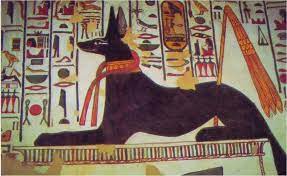
Tasos
In the Marvel universe, the Egyptian gods such as Osiris, Isis, and Horus inhabit a spatial dimension called the Celestial Heliopolis, in the same way that the Norse gods lived in Asgard, and the Olympians lived in Olympus.
In the first episode of Moon Knight, Steven Grant is seen reading about Tasos in a textbook, which talks about a group of nine deities who were worshiped by the ancients.
In real life ancient Egypt, the Great Tasos was worshiped in the ancient city of Heliopolis, present-day Cairo.
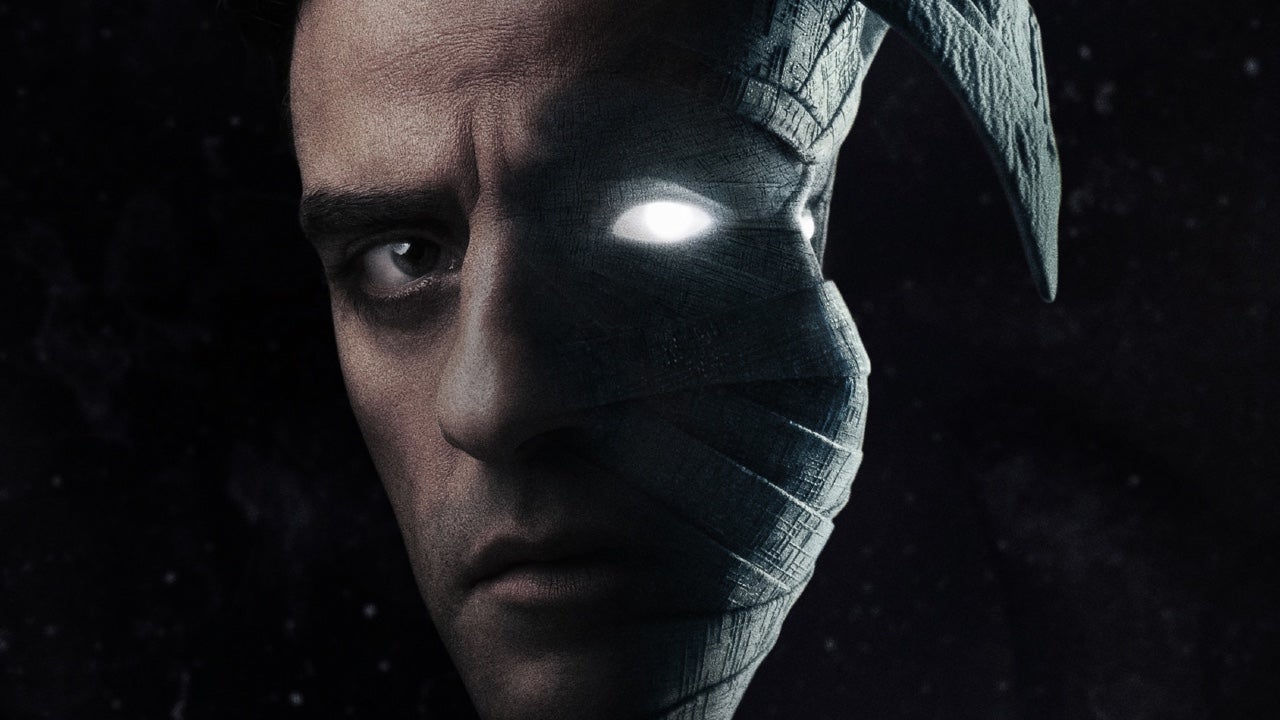
In March, Moon Knight’s director Mohamed Diab celebrated the premiere of his series “Moon Knight” in Los Angeles, in the presence of the Marvel President and Disney President.
“Being the first Arab and Egyptian to collaborate with Marvel is a great responsibility.
If the experience succeeds, God willing Arab and Egyptian directors will be hired.
I was interested in using Egyptians in the project, such as Hisham Nazih for the soundtrack, Ahmed Hafez for editing, and Reem al-Adl and Ali Hossam in the Egyptian part (of the series),” he said.
Egyptian actors such as Amr al-Qady, Zizi Dagher, Ahmed Dash and Hazem Ehab contributed to the work, he continued.
“I was interested in showing and using Egyptian talents, which of course needed determination and to be at a high level of competitiveness,” he said.
In 2017, Diab has been selected as a permanent member in the jury committee of The Academy Awards, known officially as “The Oscars”.
Born in 1978, Diab is an award-winning writer and director, whose work is often centered on pressing issues concerning Egyptian society.
He’s known for his directorial debut film Cairo 678, which was released a month before the Egyptian 25 Jan revolution. Diab also wrote the series of blockbuster Egyptian franchise films El Gezira (The Island), which are considered the highest grossing Egyptian and Arabic films of all times.
After being heavily involved in the 2011 Egyptian revolution, Diab wanted to make a film about the revolution. It took 4 years to develop Eshtebak (Clash) which initially was a film about the rise of the revolution, but ended up being a film that captures the fall of the revolution.

